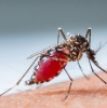- General virology ×
-
Keeping up with virus taxonomy: viruses that infect fungi
February 28, 2023
It’s time for the third installment of the ‘Keeping up with Virus Taxonomy’ blog series. This month we are looking at families of viruses that infect fungi – mycoviruses.
-
Keeping up with virus taxonomy: reverse-transcribing viruses
December 14, 2022
In the second instalment of the relaunched ‘Keeping up with Virus Taxonomy’ blog series, we look at viruses that use reverse transcription to replicate.
-
Keeping up with virus taxonomy: viruses spread by vectors
October 19, 2022
The ‘Keeping up with Virus Taxonomy’ blog series returns! In the first post of the renewed series, we look at a range of viruses that are spread by vectors.
-
In pictures: The first images of a coronavirus
April 17, 2020
Today, the word ‘coronavirus’ has become a part of everyone’s daily vocabulary. It’s difficult to believe that 60 years ago the very existence of these viruses was disputed by experts, with the first images of coronavirus written off as badly imaged influenza. Now, as the coronavirus SARS-CoV-2 continues to change the world as we know it, the history of coronaviruses is being revisited.
-
Keeping up with virus taxonomy: rod-shaped viruses, cancer-associated viruses and viruses that infect archaea
October 15, 2019
Continuing the ‘Keeping up with virus taxonomy’ blog series, in this post we look at the viruses that infect archaea that thrive in some of the most hostile environments on Earth, viruses that keep crop pest populations under control and a virus that has been linked to cancer in raccoons.
-
Keeping up with virus taxonomy: small viruses, extra small viruses and a virus used to protect against fungal disease
March 27, 2019
Continuing the ‘Keeping up with virus taxonomy’ blog series, in this post we will be discussing the virus family named after Latin for 'small', a virus that can only cause disease in humans infected with hepatitis B and the virus being used to protect chestnut crops from a harmful fungus.
-
Recently Independent Virology Researchers 2019
February 25, 2019
The RIVR (Recently Independent Virology Researchers), as the name would suggest, is a network of recently independent researchers (both lecturers and fellows) working in the field of virology. The group meets annually to network and share their science. This year, RIVR was held on 7-8 January at the Marriott Hotel in Leeds city centre. Becky Sumner attended the event through a bursary from the Journal of General Virology. Here, she discusses the event:
-
The Emergence and History of Arboviruses
January 28, 2019
The name ‘arbovirus’ is an acronym for arthropod-borne virus, referring to viruses that are transmitted by arthropods, for example mosquitoes and ticks. Well known arboviruses include dengue, West Nile, yellow fever and Zika virus. Although malaria is mosquito-borne, it is a protist, not a virus, and so is not an arbovirus.






